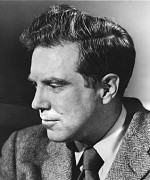Title
My lessons with Elliott Carter were the high point of my student years at Juilliard. His studio was a quiet sanctuary where we would talk about masterworks of music and his love of literature and poetry. He shared advice he got from his friend Witold Lutoslawski on how to achieve harmonic motion in densely chromatic passages and ideas about rhythmic organization from Stravinsky. We discussed how the carefully crafted motives of Haydn’s string quartets and Heidegger’s theories of time and being helped shape his own musical language.
Body
But one lesson in particular remains with me. I was working on a string quartet and had completed a dozen or more pages of wildly complex music that had all the players sawing away ferociously at multiple tempi. I was generally pleased with it, but there was a short passage in the viola part that I left unfinished.
When I arrived at his Juilliard studio, Elliott said he was running late and asked if I could come back in 15 minutes. I used the time to fill in the missing viola part. Once the lesson started, he spent the first part of it silently reading through my score. After some time he said, “I think this is some of the best music you’ve written so far. It’s really quite good. I do have a question about this one part however, and think you should consider revisiting it.” And just like that, he put his finger on the exact spot in the viola part that I had just added.
Unlike Penderecki, who often compares music to architecture, or Babbitt, whose music was informed by mathematics, Elliott was a polyglot who could think in several languages. In our lessons he often referred to Nabokov, Neruda, and Joyce and used terms like antagonist, protagonist, dialogue, and interruption to describe his compositions. One of my first jobs as a graduate student was to proofread the galleys of Elliott’s music before publication. When reviewing his work I couldn’t help but feel I was reading a script with a cast of complex characters rather than a score with instrumental parts.
Musical tastes have changed a lot since then. Downtown is now uptown, cut-and-paste is the new retrograde inversion and the music of exiled tonal composers is once again getting the attention it deserves. Through all this, however, the power and importance of Elliott Carter’s music has not diminished. In his own way, he predicted the cacophony of simultaneous conversations through texting and chatting. His superb string quartets are early forays into super string theory. He composed using multiple time-schemes long before we were forced to reconcile clock-time, Internet-time, download-time and personal-time.
As I walked to school the day I heard the news of his death, I played Elliott’s Third Quartet in my mind and realized it was far more than a brilliant composition. It is a supremely authentic work, written by a composer with real grit and conviction—a perfect lesson for my students.





